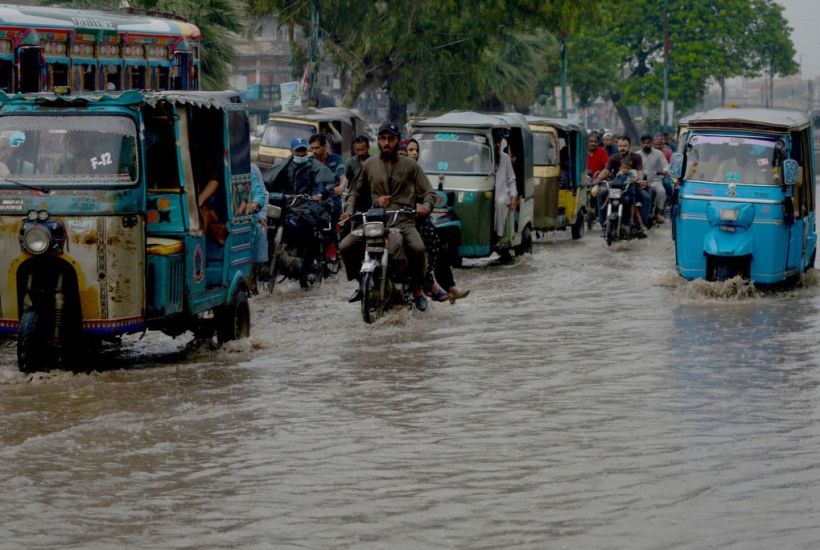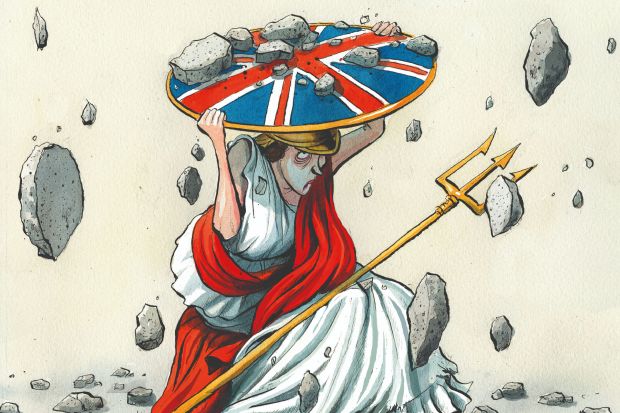Is it right that Britain should pay £1.5 billion for developing countries to adapt to floods, cyclones and rising sea levels as Rishi Sunak has announced at Cop27? Absolutely. That is what aid money is for: to help countries cope with natural disasters. If you can spend some of this money in advance of those disasters so that these countries might better be able to cope with them when they do occur, then so much the better.
Would Britain be right, on the other hand, to pay reparations to developing countries on the basis that the industrial revolution started in Britain and we, therefore, have high historic carbon emissions? Absolutely not, and for several reasons. Firstly, there is no reason to apologise for the industrial revolution, which, for all the problems it has brought with pollution and so on, has enriched the entire world.
Secondly, while Britain might have started intensive coal-burning ahead of anyone else, our cumulative emissions have long since been overtaken by other countries. Britain is currently fifth on the list for cumulative emissions since 1750, with 78 billion tonnes. We are behind the US (417 billion tonnes), China (235), Russia (115) and Germany (92). It won’t be many years before we are overhauled by India (currently 54 billion tonnes). What happens then? Does India, as major polluter, start paying reparations to itself, as developing country affected by floods?
While Britain might have started intensive coal-burning first, our cumulative emissions have long since been overtaken by others
But there is a third reason why reparations for climate change make little sense. The evidence linking most weather-related disasters to manmade climate change wouldn’t stand up in court. Take this year’s Pakistan floods, mentioned numerous times this week in connection with the reparations issue. Can they really be laid at the door of man-made carbon emissions?
A study by World Weather Attribution – an international consortium of scientists searching for links between higher global temperatures and adverse weather – published last month came to the conclusion that there was ‘likely’ a link between the intensity of the rainfall in Pakistan and rising global temperatures. But dig deeper into the document and you see the problem.
The study ran multiple climate models, with global temperatures as they are now and with global temperatures 1.2 Celsius lower than they are now, as they were in the mid-19th century. The results were all over the place. While some models did predict a large rise in the intensity of heavy rain in Pakistan following a 1.2 Celsius rise in global temperatures, others predicted less intense rainfall. As a result the scientists declined to quantify the change in risk of intense rainfall.
The Intergovernmental Panel on Climate Change notes that there is a strong trend towards more intense rainfall in South Asia and towards the migration of monsoon westwards over Pakistan. Nevertheless, it went on to state it has ‘low confidence’ in these changes being caused by man-made climate change because other factors, such as changes in irrigation practice, are involved.
The trouble is that among Britain politicians there has been a lazy tendency to try to link any kind of adverse weather to climate change – even when, as with the frequency of storms and high winds in Britain, the trend is in the opposite direction to that being claimed. In his piece on Laura Kuenssberg’s programme the other day, Ed Miliband called for Britain to make payments to developing countries for ‘loss and damage’ (he didn’t want to call them reparations). He repeated the oft-parroted untruth that a third of the area of Pakistan was underwater at the peak of the summer’s floods. The claim, originally made by a Pakistan government minister, is contradicted by UN satellite data. Of the 793,000 square kilometres analysed, 75,000 were found to have been affected by flood at some point between 1 and 29 August (Pakistan extends to a total of 881,913 square kilometres).
By lazily making connections between climate change and adverse weather events, and by repeating debunked data, politicians like Miliband are encouraging developing countries to make spurious claims for reparations. A limitless bill will be waiting for any government that ever agrees to them.
The post Britain would be wrong to pay climate change reparations appeared first on The Spectator.
Got something to add? Join the discussion and comment below.
Get 10 issues for just $10
Subscribe to The Spectator Australia today for the next 10 magazine issues, plus full online access, for just $10.





















Comments
Don't miss out
Join the conversation with other Spectator Australia readers. Subscribe to leave a comment.
SUBSCRIBEAlready a subscriber? Log in